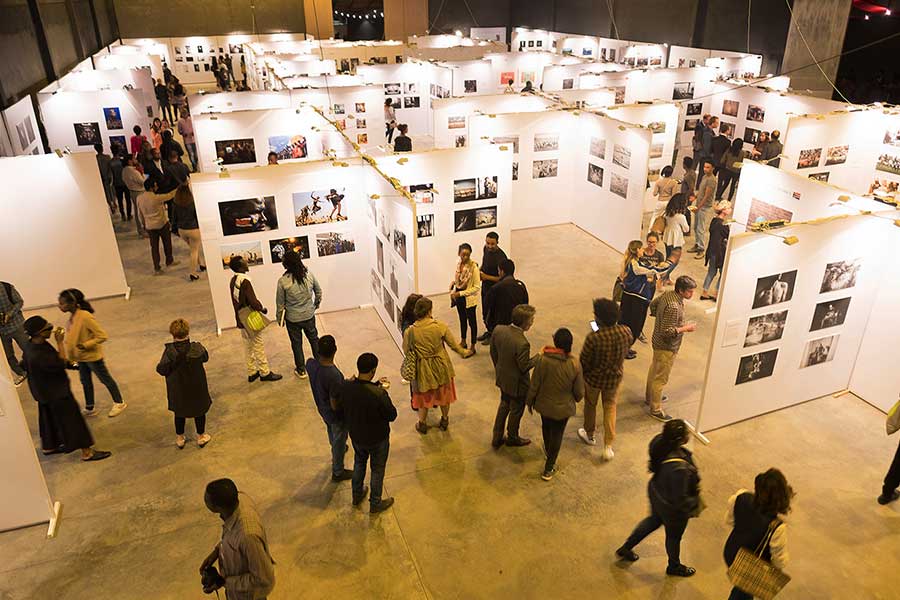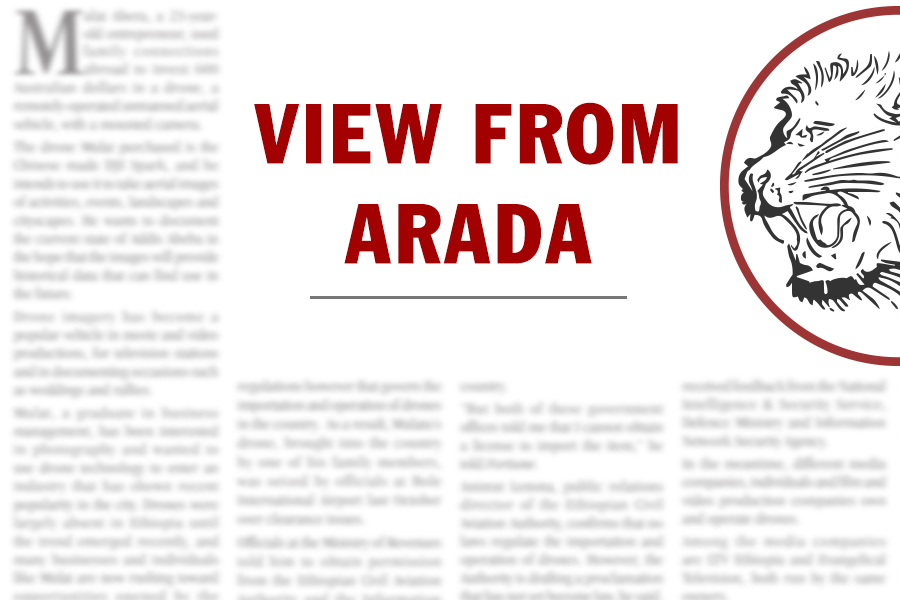
Fortune News | Feb 06,2021
Dec 28 , 2019
By Eden Sahle
A few good years have passed since I have started observing Christmas celebrations in Addis Abeba in comparison to elsewhere in the world. It is fabulous how celebrations are unique in different parts of the globe. What is surprising is how our culture in Ethiopia has faded; copying other nations’ ways of celebration. In Ethiopia, it seems that disillusionment has set in, and respecting culture is perceived as old-fashioned.
Respecting other cultures is one thing, copying them is another matter. Seeing the giant Christmas billboards and banners covering Millennium Hall that advertise the upcoming holiday exhibition is disheartening. None of the depictions represent Ethiopia in any way but rather promote other cultures.
It is unfortunate that with all the many developmental things we can learn and imitate, we are still stuck with copying cultures and other wrong things from the rest of the world. The belief that other cultures in the world are the only admirable cultures is essentially what is fuelling the problem in Ethiopia. Locals are neglecting reality, confused about whom they represent as individuals, business owners, politicians or just part of the public.
With approximately 190 countries and 7 billion people on earth, numerous diverse cultures exist. Regardless of where I travel, unlike what we do in Addis Abeba, I never saw Ethiopian culture portrayed elsewhere. The different cultures that exist in the world are what makes us beautifully diverse and interesting. For so many people, culture is about race or ethnicity, but culture goes far beyond that. Whether we like it or not, in fact, we are all members of various cultural groups, and our cultural way of doing things develop based on the influence of these memberships.
In a globalised world we are exposed to different manners of doing things and beliefs. Every country is a complex mix of unique cultural influences woven together. Culture is a system used by a society in order to interact with the world as well as with each other. Often, diverse cultural systems are portrayed differently in food, music, clothing, holidays, values, behaviours and artefacts. These cultural combinations are what makes a country more fascinating.
In Ethiopia, local cultural histories are vanishing as the populace adopts other countries' customs. In so many people’s perceptions, retaining one's culture is considered uncivilised. And this is prevalent in the capital city, where so many people consider themselves more enlightened.
The ability to learn from and relate respectfully to different cultures is admirable. But being culturally responsive, respecting other viewpoints or ways of doing things is not becoming them. It does not mean we should eliminate our culture and imitate others to be like them. Instead, it is about exploring and honouring the differences of others while retaining our own.
Cultural norms are the beauty of Ethiopia. We should introduce good aspects of Ethiopia’s culture to the world. In everything we do, our chances of interacting with people from various races, ethnic groups and cultures is far greater now than it has been ever before. Being home to the third largest number of diplomatic missions in the globe next to New York and Geneva presents an opportunity to introduce the country's cultures to the world.
Unlike what we think, people are fond of learning about other cultures, at least judging from my experience. I often wear traditional clothes when I travel. Even in European countries where people mind their own business and do not stare at others on the street or restaurants, I have encountered several people young and old and even children approaching me to ask me about my traditional dress and where I come from. It is not a surprise that none of them have heard about Ethiopia before, but a simple act of wearing cultural clothing can strike up an interesting conversation about Ethiopia.
Let us be clear. People do not admire us when we copy them but when we introduce them to our culture. In family, school and work environments, Ethiopia works hard to introduce developed countries' culture, informing a mindset in many that moving abroad and copying cultures from the developed nations is an achievement. This is breeding a confused public.
Ethiopians are to blame for this. They promote the sort of wrong mindset that being civilised is being like the rest of the world. This is not just damaging individuals’ perceptions but also the country’s diversity. How many of us are taught about the different cultures that exist in Ethiopia? Is it not when we travel around the country that we are surprised by different kinds of clothing, food and holiday ceremonies?
Politicising cultures is not promoting them. The country should teach the public to find something admirable and meaningful in the diverse cultures of Ethiopia. The public should open its eyes and respect the diverse cultures irrespective of political views. The diverse cultures are what make up Ethiopia.
Rejecting our culture in any way will never work out for the best. We realise how little attention people pay when we copy them and present to them something of their own. It just reveals to them how superficial we are and how we are obsessed with their culture instead of promoting our own.
PUBLISHED ON
Dec 28,2019 [ VOL
20 , NO
1026]

Fortune News | Feb 06,2021

Fortune News | Jul 25,2020

Featured | Sep 23,2023

Featured | Dec 07,2019

View From Arada | Nov 30,2019

Featured | Apr 30,2021

My Opinion | May 18,2019

Radar | Jan 27,2024

Sunday with Eden | Oct 26,2019

Life Matters | Apr 16,2022

My Opinion | 131772 Views | Aug 14,2021

My Opinion | 128157 Views | Aug 21,2021

My Opinion | 126101 Views | Sep 10,2021

My Opinion | 123723 Views | Aug 07,2021

Dec 22 , 2024 . By TIZITA SHEWAFERAW
Charged with transforming colossal state-owned enterprises into modern and competitiv...

Aug 18 , 2024 . By AKSAH ITALO
Although predictable Yonas Zerihun's job in the ride-hailing service is not immune to...

Jul 28 , 2024 . By TIZITA SHEWAFERAW
Unhabitual, perhaps too many, Samuel Gebreyohannes, 38, used to occasionally enjoy a couple of beers at breakfast. However, he recently swit...

Jul 13 , 2024 . By AKSAH ITALO
Investors who rely on tractors, trucks, and field vehicles for commuting, transporting commodities, and f...

Jul 5 , 2025
Six years ago, Ethiopia was the darling of international liberal commentators. A year...

Jun 28 , 2025
Meseret Damtie, the assertive auditor general, has never been shy about naming names...

Jun 21 , 2025
A well-worn adage says, “Budget is not destiny, but it is direction.” Examining t...

Jun 14 , 2025
Yet again, the Horn of Africa is bracing for trouble. A region already frayed by wars...

Jul 6 , 2025 . By BEZAWIT HULUAGER
The federal legislature gave Prime Minister Abiy Ahmed (PhD) what he wanted: a 1.9 tr...

Jul 6 , 2025 . By YITBAREK GETACHEW
In a city rising skyward at breakneck speed, a reckoning has arrived. Authorities in...

Jul 6 , 2025 . By NAHOM AYELE
A landmark directive from the Ministry of Finance signals a paradigm shift in the cou...

Jul 6 , 2025 . By NAHOM AYELE
Awash Bank has announced plans to establish a dedicated investment banking subsidiary...